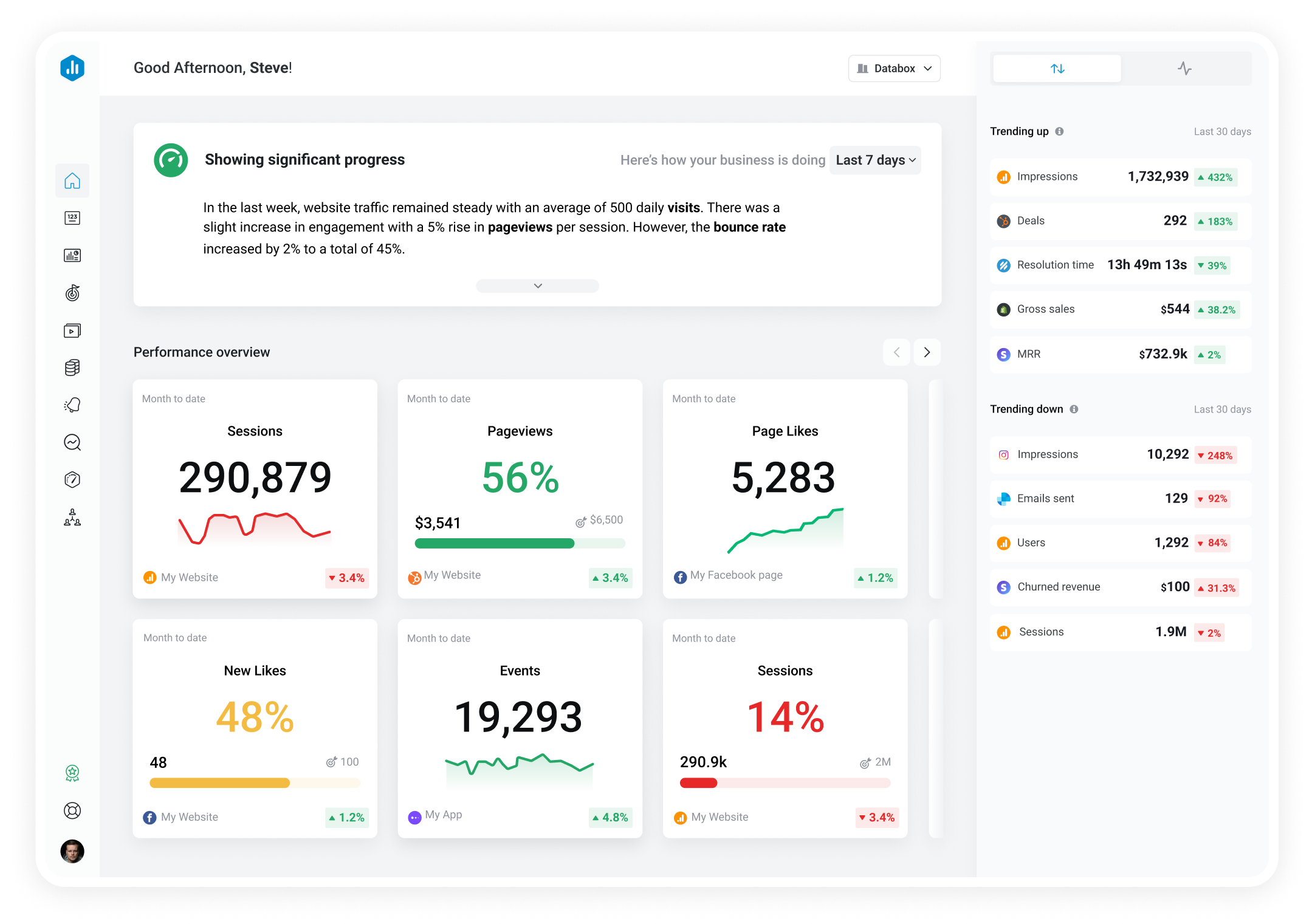Track all of your key business metrics from one screen
GET STARTED

GitHub is a web-based platform providing version control and collaboration tools for software developers. It allows users to host, review, and manage code repositories, facilitating team collaboration and maintaining project history.
GitHub is a code hosting platform for version control and collaboration. It lets you and others work together on projects from anywhere.
With Databox, your most important GitHub KPIs will be transformed into meaningful insights and delivered to your mobile, Apple Watch, TV display or Slack channels. One of the key benefits of Databox is the ability to combine multiple data sources in one place. This will help you stay ahead of your development process.
Show more...
Show more...
Show more...
Each repository from the Github account will require its own connection in Databox, which means that each Github repository will be a separate Data Source in Databox. Multiple repositories cannot be connected as a single Data Source in Databox.
A number of metrics for the GitHub integration are Non-Aggregatable. This means that due to the nature of these metrics, summing daily/weekly/monthly values will not give correct results for the total value of longer time periods.
These metrics are:
GitHub metric ‘Open Issues by Label’ counts the number of issues with each Label. However, one issue can be associated with multiple labels. Therefore, the total value of the metric will show the total number of associations across all labels, rather than the total number of issues. This can result in a higher total value for the metric in Databox in comparison to the values from GitHub.
If any manual changes are made to Labes (e.g. removing Labels) in the GitHub account after the data has already been synced to Databox, these changes will not be reflected in Databox. This applies to all dimensional Metrics with the Dimension ‘Label’. These metrics are:
